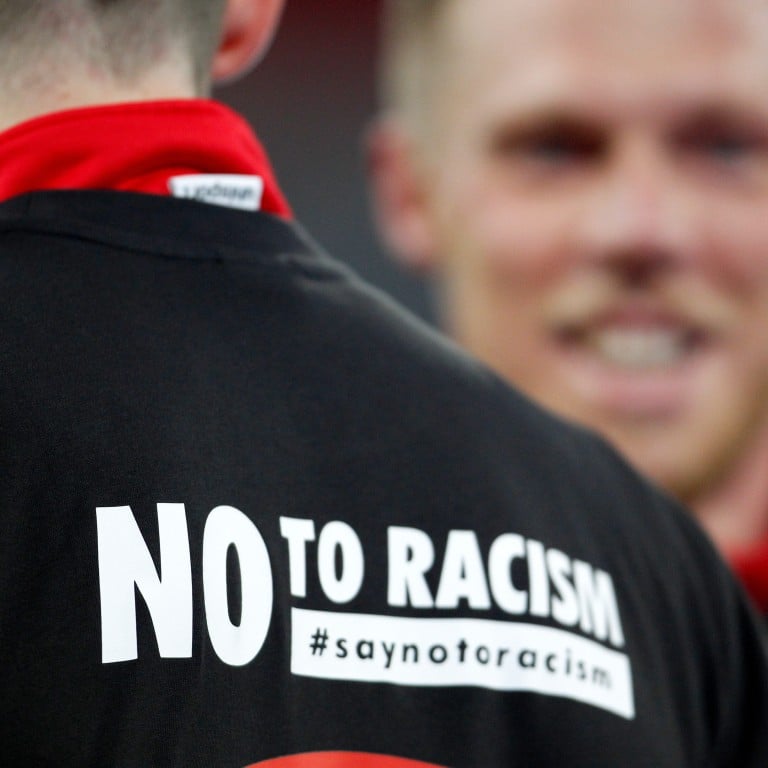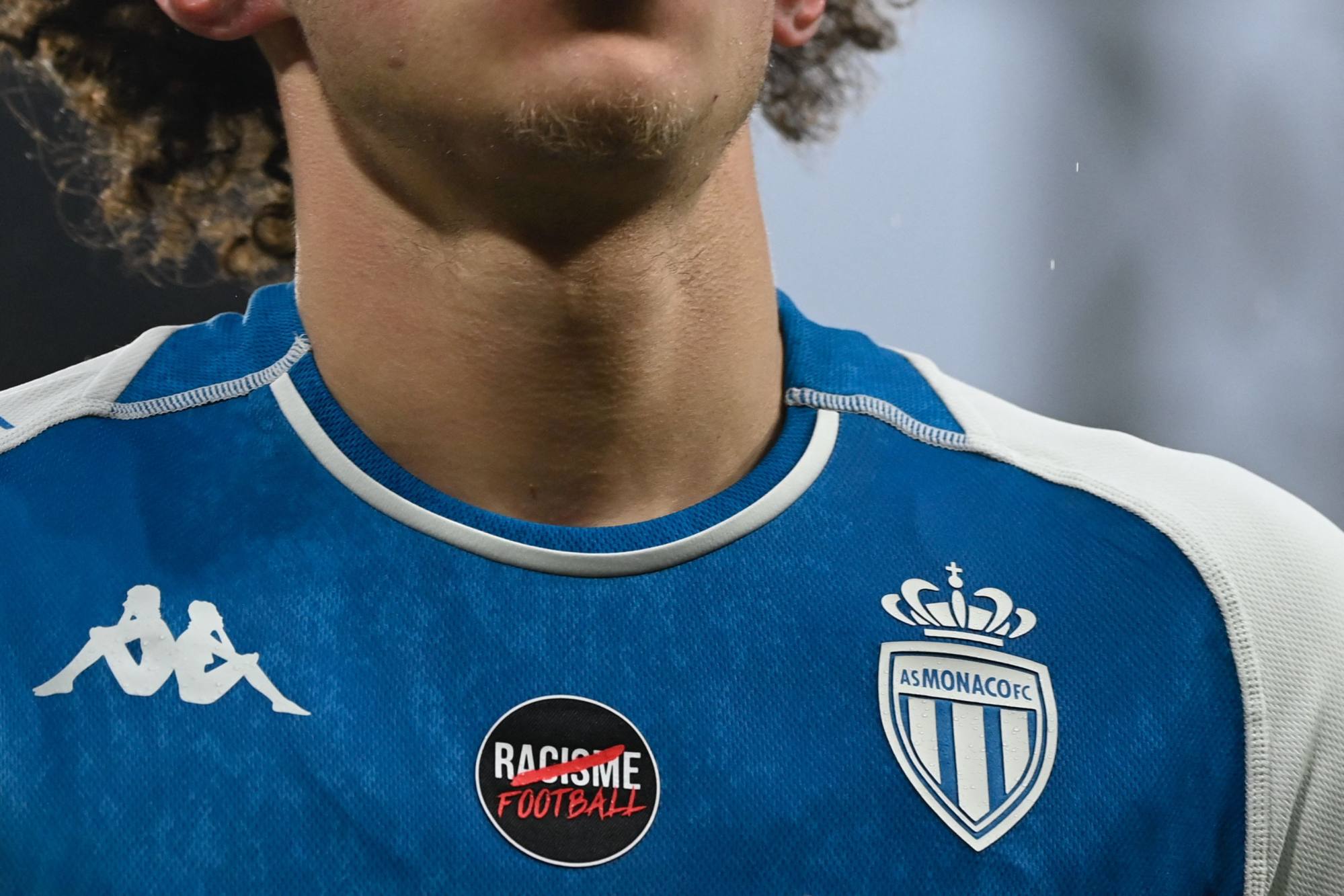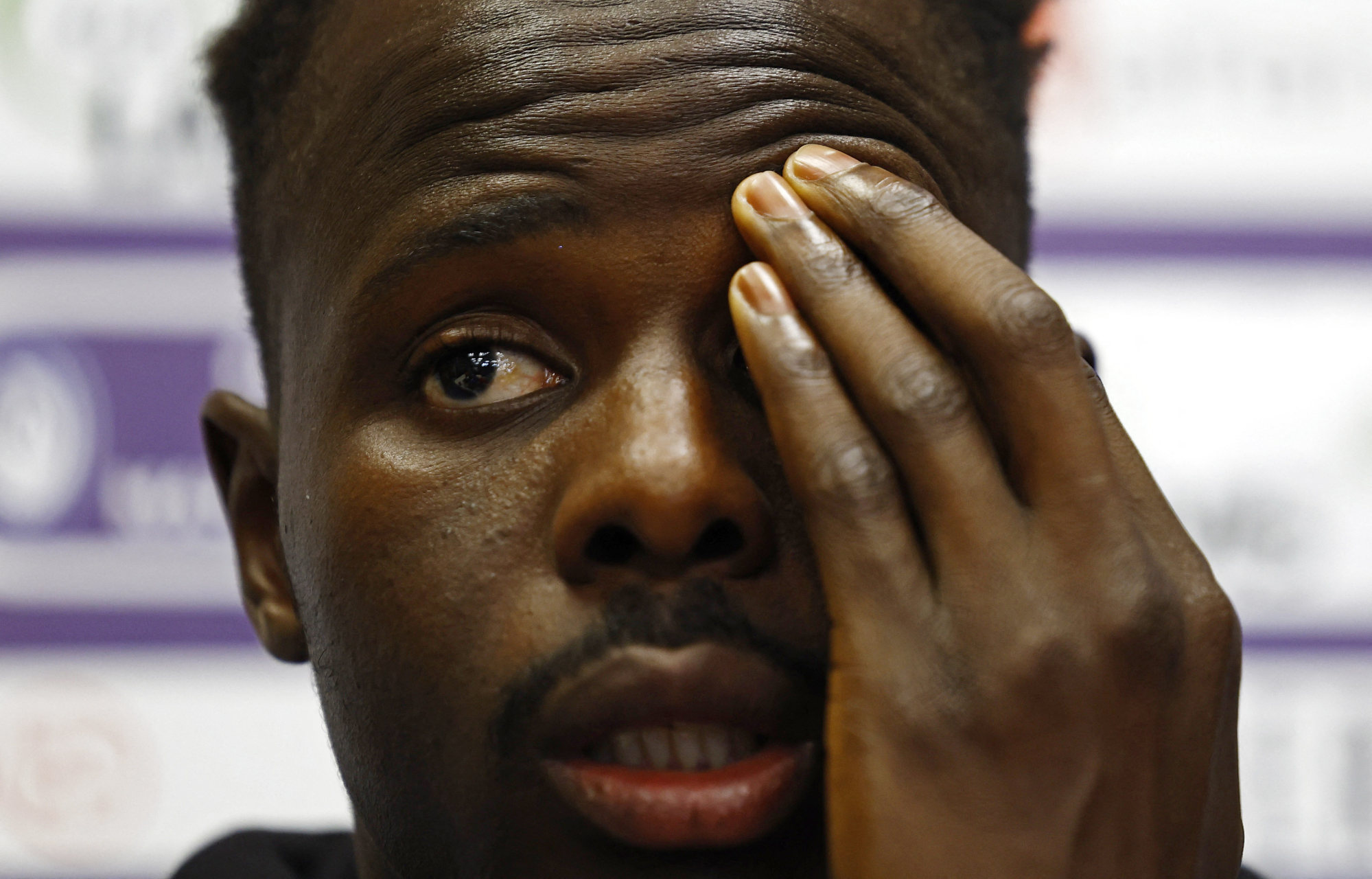
Football racists need education not prison, says German researcher, who wants tougher punishment for clubs
- University of Bochum’s Lorenz Narku Laing says football has ‘tolerated racism for decades’
- Officials should think about awarding games to teams that have players who are racially abused by rival fans
Football has turned a blind eye for too long on racism, according to a German researcher who has called for tougher sanctions against clubs while offenders should be treated in a different way.
Lorenz Narku Laing, a racism researcher from the Protestant University of Bochum, said the issue had “tolerated for decades” and become “almost normalised” within football.
He said officials needed to think about tougher sanctions for clubs, and suggested considering whether “matches should be abandoned and ruled a defeat by forfeit for the racist fan blocks”.
Germany is hosting the Euro 2024 tournament in the summer and the nation’s football federation DFB launched an anti-racism campaign in March. The world governing body Fifa plans a resolution on racism at its congress in Bangkok next month.
But there have been various incidents of racism over the past months, especially in Italy and Spain.

Last week, Italy international Francesco Acerbi was cleared by a sports court from having racially abused Napoli player Juan Jesus, who said he was “discouraged” by the outcome.
Real Madrid and Brazil player Vinicius Junior, who has been racially abused on several occasions, shed tears when asked about the issue at a news conference.
On Saturday, he said on X, formerly Twitter, that three further incidents had occurred on the weekend, and added: “We will only have victory when the racists leave the stadiums straight to jail, the place they deserve.”
Laing is not convinced stadium bans or prison terms alone will help curb the problem, and called for an additional educational option for offenders.
“This person should be offered a seminar on racism by the sports association so that he really learns to understand for himself what it means and how much it hurts people,” he said.
“It’s not just about ejections, more police in stadiums and bans, it’s about more empathy, more fairness, more togetherness, forgiveness and actually an emotionally personal learning journey for the people who are behaving wrongly.”

Laing spoke of a mentality that footballers were “supposed to be tough on the pitch” and that football still lacked the right awareness despite progress in society as a whole.
“It’s a problem that football hasn’t yet managed to recognise racism as a problem in its own right,” he said.
“Either you distance yourself from it because you say that it just happens in the heat of the moment. Or you distance yourself from it because you delegate it to the judiciary, the police, the lawyers.”
In Spain’s third division, players recently made a statement of their own. Goalkeeper Cheikh Kane Sarr from the Rayo Majadahonda club was sent off after confronting a spectator who had allegedly racially abused him. His teammates showed solidarity and left the pitch as well.
Things went the opposite way in Italy’s Serie A in January. AC Milan goalkeeper Mike Maignan left the pitch after being subject to racial chants from Udinese fans, the match was interrupted but teammates then convinced the Frenchman to play on.
Jesus’ club Napoli have decided to not to take part in the Italian federation’s anti-discrimination measures in the wake of the Acerbi incident, dismissing such efforts as cosmetic.
Laing named such campaigns also undertaken in other countries “an attempt to show that sport has a clear stance. Attitude is important but not everything”.
Uefa, the game’s governing body in Europe, introduced a three-step scheme in 2011 to counter racism, starting with the referee stopping a match, then sending players into the dressing room, and as a final resort abandoning the match.
Calling racism a crime, Fifa president Gianni Infantino told the recent Uefa congress that “the problem is we have different competition organisers, rules, competitions and what we’re doing is not enough”.
As a result, he wants “a strong resolution, united, all 211 countries of Fifa, for the fight against racism” at the May congress.

